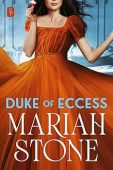Looking to learn the definition of a specific term used in relation to book marketing, book advertising, publicity or promotions? Below you will find a glossary of the most common book promotion and book marketing terms.
Amazon Advertising: Authors can advertise their books directly on Amazon by simply clicking the “Promote or Advertise” button next to their book title. With Amazon Advertising, you can define your budget, target a specific marketplace, time your campaign, and select a country for your ads to appear in. It’s based on a PPC (Pay Per Click) model, so you’ll only pay when shoppers click on the ad.
Amazon Author Central: The Author Central hub provides an opportunity for you to tell your readers more about yourself and your books. Creating an Author Central profile puts all your information in a single location, helping you extend your online presence and gain more visibility. Your profile can include your bio, photo, social media links, books you’ve written, or any other information you’d like to add (such as your website or blog). For more info, see How to Use Author Central on Amazon.
ASIN (Amazon Standard Identification Number): An ASIN is a unique 10-digit code that Amazon assigns to all products that it sells.Amazon uses this code internally to track inventory, sales, and rankings, as well as recommend similar products to customers. Authors using the KDP platform have an ASIN automatically assigned to each book they publish on Kindle. You can learn more about Kindle book ASINs here.
Author Brand: Your author brand encompasses all the unique elements and associations people have about your personality and writing style. For example, your brand can include the genres you enjoy reading or writing, the way you interact with fans, your fashion sense, your presence on social media, hobbies or movements you’re passionate about, and anything else that you make public about yourself.
ARC (Advanced Reader Copy): See Galley Copy.
Author Photo (Headshot): A professional photo of an author to use on his/her website, social media profiles, author page, book jacket, or other promotional purposes.
Author Platform: An author platform refers to the size and engagement of a writer’s fan base. An author can build their platform using a variety of skills and tools, such as their social media expertise, total online reach, number of book sales, personal and professional connections, charisma, humor, or interactions with fans.
Author Site: An author’s personal website where their books, biographical information, blog, and other relevant material is displayed.
Back Matter: Back matter refers to the last pages of a book that appear after the story comes to an end. Back matter can include acknowledgements, an author’s bio, or excerpts from other books. Savvy authors may also use back matter to ask readers to sign up for their newsletter, leave a review, download a sample chapter from another book, follow them on social media, and more. For more info, learn about the best ways to use back matter.
Best Seller Lists: These lists use sales data to keep track of the most popular books on a weekly or periodical basis. There are more than 20 major best seller lists in the US, including the prestigious New York Times Best Sellers List and the Amazon best sellers list. For a complete overview of the top best sellers lists, follow the link to understand the criteria required for each list’s selection process.
Blog: A blog is often used as a personal website for someone to post articles, reviews, or essays, share interviews, embed videos, or link to other articles or online sources. Authors frequently take a casual tone to connect with their audience, promote new releases, share personal or professional information, embed book trailers, or post chapter snippets and brief articles.
Blog Tour: A blog tour is a coordinated, multi-platform way for you to feature your content on several blogs or sites in a specific time period, often lasting for 1 or 2 weeks. All of the dates and content are planned in advance, so during the tour itself, you can engage with your followers. The ultimate goals of a blog tour includes generating book sales and increasing your fan base.
Blurb: See Endorsement.
Bookbub: For readers, BookBub is a book discovery service that provides special deals and personal recommendations for readers. For authors, BookBub is one of the most highly selective (but effective!) book promotion services.
Book Promotion (book promo): A book promotion is a marketing campaign for authors to boost sales, generate reviews, and increase awareness of their books. A book promo might include a Kindle Countdown Deal, a price drop, social media posts, a paid social media campaign, Amazon Advertising, a blog tour, an author interview, use of a book promotion site, or a combination of these marketing tactics.
Book Promotion Site (book promotion service): Book promotion sites are tools authors use to drive sales of paid books and downloads of free books. These sites may offer packages of promotional services that can include email newsletters, social media posts, blogs, and exposure via specific apps. Although sales results tend to vary from book to book with promotion sites, you can learn more about finding the right platform for your content on our book promotions page.
Book Review: (See also: Customer Review) A book review can include a professional opinion, a short synopsis, a personal reaction, or a critical examination of a specific book. Book reviews can appear all over digital and print media, published by anyone from experienced columnists or editors to everyday Amazon customers. Regardless of what a review says or who wrote it, however, authors are often delighted by 5-star reviews and frustrated by negative reviews. See How to Respond to Negative Book Reviews to learn more.
Book Trailer: A short video designed to create interest in your book.
Booksliced: Booksliced is a website dedicated to helping readers find free Kindle books.
Clicks: The number of times people clicked or tapped on a link that directed them to your book on Amazon or another book retailer site.
Conversion Rate: The percentage of people who buy your book after landing on the product page. Typical conversion rates are about 5-10% on Amazon book pages.
Customer Review: A customer review is simply a customer’s rating and opinions of a product they purchased online. Since reviews are one of the most influential factors in driving sales, authors can be distressed after receiving negative or overly critical book reviews. Follow the link to read more about dealing with negative book reviews.
Category: Booksellers separate titles into different categories or genres to organize similar content for customers.
Detail Page: This is a page that Amazon and other eCommerce sites create to display a book’s details, which can include the cover image, description, sales rank, reviews, author information, available formats, page count, and publication date.
Endorsement: A short review or sentence of praise for your book, typically from another author or celebrity. Endorsements can be placed on your book cover, website, and/or your Amazon detail page.
Galley Copy: A sample copy of your book in physical or eBook format, typically produced before the final version of the book is ready. Galley copies or ARCs (Advance Reader Copies) can be sent to book reviewers or news outlets.
Goodreads: Goodreads is a social media site where readers can get book recommendations, write reviews, make reading lists, follow authors, and more.
Goodreads Advertising: Authors can pay to have their book displayed to interested readers using Goodreads Advertising. Typically, an ad includes the cover of your book, a teaser copy, and links to your book’s Goodreads page. When someone clicks your ad, your book lands in their “to-read” list.
Goodreads Giveaway: Goodreads giveaways are set up by authors to give lucky readers free physical or digital copies of a book. You can learn more about Goodreads giveaways here.
Guest Blog: A short article that you create for someone else to share on their blog. Typically, authors provide guest blogs to gain exposure to a new audience and get a link back to their site, which is beneficial for SEO.
Hook: Also called a “sales handle” or “keynote,” a hook is a short sentence designed to pique a reader’s curiosity about a book.
International Pricing: KDP allows authors to set international prices for customers in the US and all other countries where Kindle books are sold.
ISBN (International Standard Book Number): This is a unique 13-digit number assigned to the physical copy of a book. This number is used by book retailers to order copies and track inventory, and libraries use it to catalog books. Only physical books require ISBNs, whereas eBooks do not need them to be sold on the Kindle, Nook, or Kobo stores.
JustKindleBooks: A book discovery website that features free and discounted books daily. Many authors use JustKindleBooks to promote their books.
KDP (Kindle Direct Publishing): KDP is Amazon’s eBook publishing platform for both self-published authors and traditional publishers. Authors can use KDP to publish a Kindle or print-on-demand version of their book. Author’s retain the rights to their books and earn anywhere from 35-70% of each eBook sale that they make.
KDP Select: Authors can choose to enroll their books in the KDP Select program, which offers 3 main benefits. First, KDP Select lists your book in the Kindle Unlimited selection and you earn money based on the number of page reads the book receives each month. Second, you can run time-bound discounts, known as Kindle Countdown Deals. Finally, you can list your book as free for up to 5 days per enrollment period. Although this program makes your digital eBook exclusively available through KDP, you can continue to distribute your book in its physical format through any online channel.
KDP Select Global Fund: This is a monthly fund that contains around $30-40 million to pay authors for the page reads they receive from their books enrolled in KDP Select.
KDP Select All-Stars: These are the 100 most-read Kindle Unlimited titles in the US and the top 25 titles in the UK in any given month. Titles in this category are awarded bonuses (see more).
Kindle Countdown Deal (KCD): A Kindle Countdown Deal is a perk of the KDP program that lets authors run limited-time discounts on Kindle books available on the US and UK Amazon sites. Customers who view the book’s detail page can see the regular price of the book, the promotional price, and the remaining time left until the deal expires.
Kindle Free Days: If you have enrolled your book in the KDP Select program, then you can elect to make your book free for up to 5 days per quarter (4 month period). Authors typically make their book free to gain new fans, get book reviews, or hook readers on a book series. See the Six Benefits of Setting Your Book Price to Free if you’re curious about how this strategy can help you.
Kindle Instant Preview: Kindle Instant Preview lets people read a select few pages of your book by clicking on a link that you can put anywhere, including your website, in a blog post, or on social media. Learn more about How to Use Kindle Instant Preview by following the link.
Kindle Keywords: These are the words a shopper uses when searching for a book on Amazon or in the Kindle store. To attract the most interested readers, authors try to include the most relevant keywords in their book descriptions or metadata so their books will appear near the top of the search results.
Kindle Content Quality: Books enrolled in the KDP program must meet a quality threshold that accounts for formatting inconsistencies, typos, font size issues, and other problems. If your book is found to have quality issues, KDP will flag these in your book and send you a Kindle Quality Notice.
Kindle Terms of Service/Terms of Use: When a reader purchases a Kindle book, they’re not the owner of the book or the owner of the file containing the eBook content. The author or publisher remains the owner, while the reader must adhere to the Kindle terms of use agreement. This is basically a licensing agreement with Amazon and the book publisher. To learn about what this contains, read more here.
Kindle Unlimited (KU): Kindle Unlimited is an Amazon service that allows you to read as much as you want each month from a selection of over 1 million books and thousands of audiobooks. These books can be read using a Kindle device, a PC, or the Kindle mobile app. The program costs $9.99 a month, but you can cancel anytime, if you choose.
KNEPC (Kindle Edition Normalized Page Count): This is a method that Amazon uses to determine the number of pages a customer has read in an author’s eBook offered in the Kindle Unlimited program. Authors with books in the KU program are paid based on the number Kindle Edition Normalized Pages that are read of their book each month.
Kindle Unlimited (KU) Downloads: For books enrolled in the Kindle Unlimited program, a download is defined as someone clicking the “Read now for free” button on your Amazon detail page and having the book sent to a device. Author’s are not compensated by KU downloads, but rather by KNEP reads (see KNEPC above).
Launch Party: An event to celebrate your book’s publication, typically held on your book’s publication date.
Look Inside: Books on Amazon that display the “Look inside” sticker on the cover image allow readers to view a select number of book pages. This feature allows readers to get a sense of what the book is about before they purchase it.
Marketing Plan: This is a strategic plan detailing all marketing, advertising, and promotional activities planned for your book. Marketing plans can include book promotions from sites like JustKindleBooks, book giveaways, Kindle Countdown Deals, social media posts, professional book reviews, book readings or signings, speaking engagements, or other creative advertising tactics.
Media List: A targeted list of media outlets researched and created by your publicist that you can pitch your book to.
Media Contact: This is someone in the media who you or a publicist can contact to set up a book review or author interview.
Media Coverage: Media coverage includes book reviews, interviews, articles, Q&A sessions, or other media outlets highlighting your books or you as an author. Media coverage is often secured by a professional pitching your story to a media outlet.
Media Kit: Your media kit is usually made available on your website for book reviewers or journalists who want more information about your book, a high-resolution image of your book cover, or a professional photo of you.
Media Outlet: Media outlets include newspapers, magazines, radio shows, TV shows, online news sites, podcasts, blogs, and anywhere else people find entertainment news.
Metrics: A metric refers to one kind of data collected from a marketing campaign, such as the number of impressions, clicks, conversions, or other actions.
NetGalley: NetGalley is an online book review site where book lovers, book reviewers, librarians, booksellers, educators, and journalists can request complimentary eBooks to read in exchange for providing a review. Follow the link to learn more about NetGalley.
Permafree: Permafree books are listed as free for long periods of time or permanently. Authors can list their Kindle book as permafree by setting their book price to free on Apple Books, Nook, and other platforms since Amazon will match the free price. Some authors choose to make the first book of a series permafree as a strategy to get readers to buy subsequent books.
Pitch Email: This is an email sent to a book reviewer or media personnel to ask them to cover your book. It should include the synopsis of the book or key information about the author, but each email should be tailored individually by contact.
Press Release: This is a brief announcement of your book release used to entice media outlets to write about your book or interview you. A press release typically includes a quick summary or blurb about your book, your bio, who the publisher is, the publication date, and your top endorsements.
Price Elasticity: Elasticity refers to the change that occurs when book sales increase or decrease based on the price. For example, a book priced at $1 may get 40 purchases per day, whereas raising the price to $2.99 might reduce purchases to 12 copies per day. Many authors will track and measure sales volume based on price points to optimize their book price.
Pricing: Simply put, pricing refers to the cost of your eBook or print book. US authors in the KDP program can set and adjust their pricing from $0.99 and up.
Promotion Date: The date that you plan to run your book promotion. Book promotions are timed with price drops or periods when your book is available for free.
Sales Rank: A book’s sales rank on Amazon shows how well it is selling compared to all the other books being sold on Amazon. For example, a book ranked as #1 is selling more than any other book on Amazon. Amazon’s sales rank is updated hourly to reflect the most accurate data.











